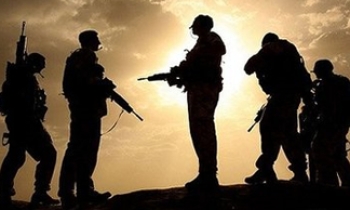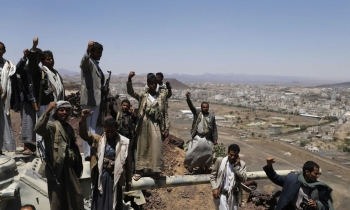The Australian and British governments colluded to cover up the killing of five Australian-based journalists in East Timor in 1975, new documents have revealed. Five television journalists – Greg Shackleton, Gary Cunningham, Tony Stewart, Malcolm Rennie and Brian Peters – were killed while covering Indonesia's invasion of East Timor.

The Times of London reported that the documents have been obtained after a longrunning campaign by relatives and supporters of Peters and Rennie, two British journalists who were working for Australian television. In October 1975, along with three colleagues from Australia and New Zealand, they were killed while filming a clandestine attack on East Timorese soldiers in the town of Balibo by Indonesian soldiers and East Timorese opposed to independence.
Acording to witnesses they were murdered in order to prevent evidence of Indonesia's covert war on East Timor from being broadcast to the outside world. Their bodies were immediately burnt and nothing more than a few charred bones could be recovered. Public opinion in Australia was outraged by the deaths of the men.
In a startling insight into foreign complicity in Indonesia's invasion of the former Portuguese colony, the then British ambassador in Jakarta, Sir John Ford, asked the Australian embassy to refrain from pressing Indonesia for details of the deaths. "We have suggested to the Australians that, since we, in fact, know what happened to the newsmen it is pointless to go on demanding information from the Indonesians which they cannot, or are unwilling to provide," Sir John wrote.
"Since no protests will produce the journalists' bodies I think we should ourselves avoid representations about them." Sir John's cable, dated eight days after the deaths of the so-called Balibo Five, ended by suggesting that the journalists were responsible for their own deaths. "They were in the war zone of their own choice," he wrote.

After the defeat of the United States (US) in Vietnam, Indonesia's status as a pro-Western, anti-communist state was far more important to Britain than justice for tiny and obscure East Timor. The process of decolonisation in Portuguese Timor began in 1974, following the change of government in Portugal in the wake of the Carnation Revolution. Owing to political instability and more pressing concerns with decolonisation in Angola and Mozambique, Lisbon effectively abandoned East Timor, which unilaterally declared itself independent on November 28, 1975.
Nine days later, it was invaded and occupied by Indonesian forces before this could be internationally recognised. Following the UN-sponsored act of self-determination in 1999, Indonesia relinquished control of the territory, which achieved full independence on May 20, 2002. An estimated 250,000 people were killed during Indonesia's occupation in an initial population of about 600,000 at the time of the invasion.
According to the Times report, the documents show that Britain's main priority was to prevent the issue from outraging British public opinion. "Timor was high on (US National Security Adviser) Henry Kissinger's list of places where the US do not want to comment or get involved," Sir John wrote in October 1975 before the invasion. After all, the popular Revolutionary Front for an Independent East Timor (Frente Revolucionária de Timor-Leste Independente or FRETILIN) party was seen to be communist.
From Wikipedia:
The Balibo Five were a group of Australian television journalists based in the town of Balibo in the then Portuguese Timor (now East Timor), who were killed on October 16, 1975 by Indonesian troops mounting incursions, prior to the full-scale invasion of the territory on December 7th that year.
They included two Australians, Greg Shackleton and Tony Stewart, a reporter and cameraman for HSV-7 (Seven Network) in Melbourne, two Britons, Brian Peters and Malcolm Rennie, and a New Zealander, Gary Cunningham, working for TCN-9 (Nine Network) in Sydney.
While the men were aware that Indonesian troops were to mount an attack on the town, they believed that as Australian journalists, they would not be considered military targets. Greg Shackleton was filmed painting a Australian flag and the word 'AUSTRALIA' on the wall of a house.
The Indonesian military justified its killing of the camera crews on the grounds that they were 'communists', and sympathisers with the FRETILIN party in Portuguese Timor; however most historians think they were killed to prevent them exposing the Indonesian incursions. The men's remains were, in fact, taken to Jakarta for burial, without the consent of their families.
Greg Shackleton's widow, Shirley, became an outspoken supporter of East Timor's fight for independence in Australia. Other relatives were so traumatised by the event that for many years they did not pursue the matter any further. It was not until 1994, that Brian Peters' sister, Maureen Tolfree, became involved with the East Timor issue, having heard of a demonstration in her home town of Bristol against the sale of BAE Hawk fighter jets to Indonesia.
As a report on the website of the Dart Centre for Journalism and Trauma says, "However, the story of the Balibo Five is far from finished. There has never been a full judicial inquiry into their deaths. On December 8, 1975, Roger East, an Australian journalist who had gone to Timor to report on the deaths of the Balibo Five, was shot dead on a wharf in Dili, along with many Timorese, as part of a mass execution. In 1999, Sander Thoenes, a young Dutch journalist went to report on the continued struggle of the Timorese people. He also was shot dead in Dili. There has never been a full enquiry into either of these deaths and significant questions about these murders remain."
See also:









